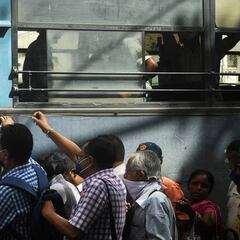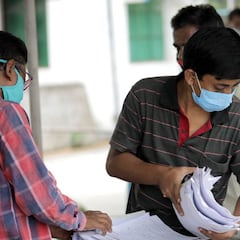Coronavirus: Taj Mahal reopens despite India's surging case count
India's most famous tourist attraction reopened on Monday, with a reduced capacity and a range of other Covid-19 safety measures.

The Taj Mahal, India's most popular tourist attraction, started to welcome visitors again on Monday despite the country's ongoing struggle with increasing daily Covid-19 infections and fatalities.
India has been reporting around 90,000 cases on a daily basis for several weeks, and its caseload has reached over 5.4 million infections since the pandemic started. The country is currently the second-most affected nation in the pandemic, with all indications showing that it will overtake the US soon as the worst-hit country.
Taj Mahal visitors limited to 5,000 a day
The Taj Mahal has been closed since the first lockdown was imposed in India back in March. However, the central government thought it was time for the world-famous white-marble mausoleum to reopen as authorities have been lifting restrictions gradually.
The tourist site used to attract around seven million visitors a year, but the daily number of visitors is currently limited to up to 5,000 visitors per day, with strict social distancing measures rules imposed according to officials. In addition, visitors can only purchase their tickets online now.
Related stories
So many sectors in the country including tourism have been seriously hit following the pandemic outbreak and lockdown period, with millions of people losing their jobs. This pushed the government to gradually ease restrictions on most industries to revive its economy, as well as help people earn their living.
Re-opening the Taj Mahal is considered one of many decisions authorities have taken recently to improve economic conditions in a country that has been in the fourth phase of easing restrictions - "Unlock 4" - since the beginning of September.

